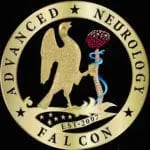Neuropathy is the medical term for nerve damage. Neuropathy is a common complication of Type 1 and Type 2 Diabetes; up to 26 percent of people with Type 2 Diabetes have evidence of nerve damage at the time that diabetes is diagnosed.
Other types of neuropathy can also affect people, but the most common type of Neuropathy is Polyneuropathy.

Potential Complications
As you lose the ability to sense pain or sensitivity to hot and cold, your risk of injuring your feet increases. Injuries that would normally cause pain (e.g. stepping on a splinter, wearing shoes that create a blister, developing an ingrown toenail) do not necessarily cause pain if you have Neuropathy.
Examination
During an examination, there may be signs of nerve injury, including:
Loss of the ability to sense vibration and movement in the toes or feet (E.g. when the toe is moved up or down)
- Loss of the ability to sense pain, light touch, and temperature in the toes or feet
- Loss or reduction of the Achilles tendon reflex
- More extensive testing, including Nerve Conduction Studies, Nerve Biopsy, or Imaging Tests (such as X-ray or CT scan), is not usually needed to diagnose Neuropathy.
Control of Pain caused by Neuropathy
Control pain — Neuropathic pain can be difficult to control and can seriously affect your quality of life. Neuropathic pain is often worse at night, seriously disrupting sleep.
Fortunately, only a small percentage of people with Neuropathy experience pain. Pain resolves without treatment in some people over a period of weeks to months, especially if the episode of pain developed after a sudden change in health (E.g. an episode of ketoacidosis, a significant weight loss, or a significant change in blood glucose control).
What are the symptoms of Neuropathy?
Neuropathy causes a range of symptoms, depending on the location and severity of your peripheral nerve damage. For example, some of the common symptoms of Neuropathy include:
- Numbness and tingling in your extremities
- Pain or burning sensations
- Lost coordination and balance
- Inability to grip or hold objects
- Reduced reflexes
- Feeling like you're wearing gloves or socks when you aren't
You might also develop symptoms like muscle spasm or cramping, problems walking, or paralysis. If your autonomic nerves are affected, your blood pressure may change, or you could develop abnormal sweating, bowel movements, or sexual dysfunction. The pain may be worst at rest and improve with activity, such as walking. Some people initially have intensely painful feet while others have few or no symptoms.
You could also develop neuropathy from infections and autoimmune disorders, physical trauma, vascular health problems, and vitamin imbalances. Alcoholism and exposure to certain chemicals and medications can also cause neuropathy.
Diagnosis and Treatment
Neuropathy can affect both sides of the body. Symptoms are usually noticed first in the toes. If the disease progresses, symptoms may gradually move up the legs; if the mid-calves are affected, symptoms may develop in the hands. Over time, the ability to sense pain may be lost, which greatly increases the risk of injury.
Treatment for Neuropathy
There are several medications that are useful for the treatment of Neuropathy and have been approved by the FDA, including Duloxetine and Pregabalin. Other medications are also useful, including Tricyclic medications (E.g. Amitriptyline), Gabapentin, Tramadol, and Alpha-Lipoic Acid.
For example, if you have Diabetes, Dr. Rathore offers advice on managing your disease or a referral to an endocrinologist to help you control your diabetes. At the same time, he might recommend physical therapy to help you improve your balance and reduce your risk of falling or other injuries. Dr. Rathore can also recommend dietary changes and nutritional supplements to support nerve health.
If you have severe nerve pain, Dr. Rathore might suggest nerve blocks or nerve ablation treatments to disrupt the pain signals and alleviate your symptoms.
Around 20 million Americans have Neuropathy. We will diagnose and manage your Neuropathy with customized treatment plans to relieve symptoms and help you reclaim your life. If you have pain, numbness, or other neuropathy symptoms, then call Dr. Rathore, to make an appointment today for customized neurological care to address Neuropathy.
FAQs regarding Neuropathy
Different conditions can cause neuropathic pain, including:
- Diabetic neuropathy – This is a form of nerve damage that can happen in people with diabetes.
- Post-herpetic neuralgia – This is a condition that can happen after people have a painful rash called “shingles.”
- Stroke – A stroke is when a part of the brain is damaged because of a problem with blood flow. People can have neuropathic pain after a stroke.
But sometimes, doctors can't figure out what's causing a person's neuropathic pain.
Maybe. Your doctor or nurse will ask about your symptoms and do an exam. He or she might do: Blood tests Nerve tests to check whether your nerves are working normally
Treatments for neuropathic pain include both medicines and activities. No single treatment works for everyone. Your doctor or nurse will help you find the right mix of treatments for you. Several different types of medicines can be used to treat neuropathic pain. The medicines used most often are ones that are also used to treat other conditions. Doctors treat neuropathic pain with medicines for depression, because they work on areas of the brain that process pain. Doctors also treat neuropathic pain with medicines that prevent seizures, because they help with overactive nerves. Other medicines doctors sometimes use to treat neuropathic pain include:
- Pain-relieving or numbing medicines that go on the skin as a cream, patch, or spray
- Injections (shots) of numbing or pain-relieving medicines that go into the spine or the area with pain
Prescription pain medicines called opioids are sometimes used for neuropathic pain. However, these medications can lead to problems with abuse or addiction in some people. Opioids are also sometimes called “narcotics”. Other kinds of treatments can also help with neuropathic pain. Some of these include:
- Physical therapy
- Working with a counselor
- Relaxation therapy
- Massage therapy
- Acupuncture
- Devices that affect nerve signals
To find the best treatment for you, you should be open to trying new treatments or combinations of treatments. Sometimes people have to try a few different things before they find the one that works best.
Yes. You can:
- Use a heating pad or cold pack on the painful area. Check with your doctor before trying this to make sure it is OK for your individual condition.
- Learn ways to relax your mind and body, such as doing deep breathing exercises. Relaxing your mind can help with how the body feels pain.
- Stay as active as possible. If you haven't been active for a while, start slowly and increase your activity slowly.
- Tell your doctor or nurse if you feel depressed. Neuropathic pain and depression often go together, and each can make the other worse. Getting treatment for your depression can help you cope more easily with your pain.
